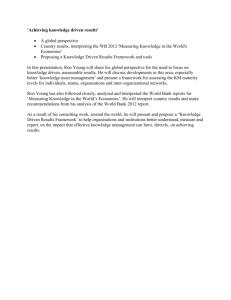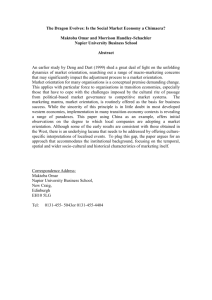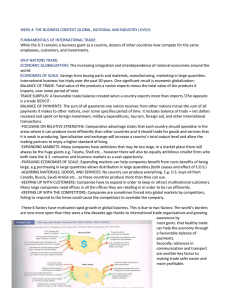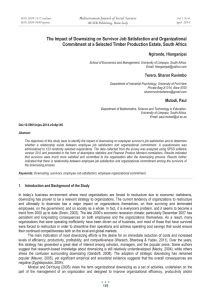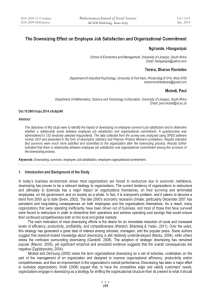The-Nature-of-Business
advertisement
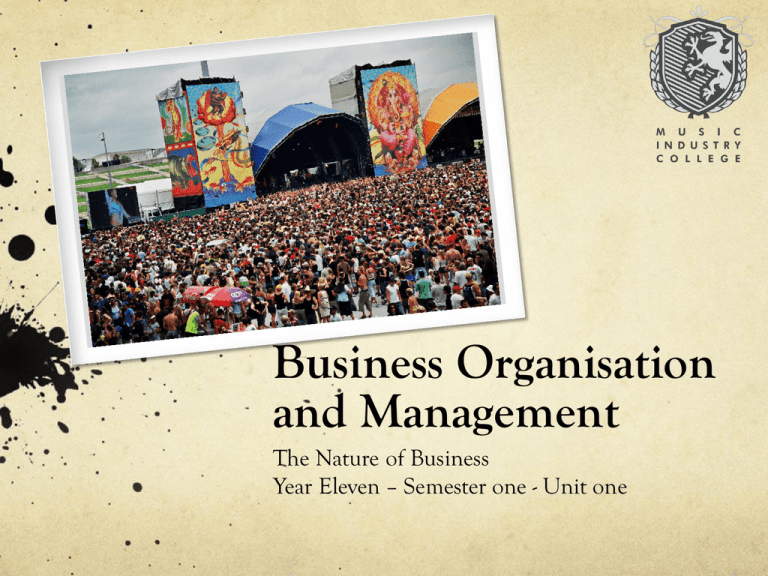
Business Organisation and Management The Nature of Business Year Eleven – Semester one - Unit one Roles of Business Production Employment Careers Enterprise Investment Production Production is the process of manufacturing a product or providing a service Organisations attempt to do this in a way that maximises profits. Economies of scale refers to lower costs per unit of output as a result of operating on a larger scale. Producing a lot of units results in lower production costs. Why do you think large organisations have an advantage in maximising economies of scale? How can a small record label gain some economies of scale? Direct financial benefits of economies of scale Business capacity to save money Lower costs of advertising Lower cost of transport Lower unit price of material inputs (bulk buying) Lower unit cost of energy inputs Lower cost of finance Other economies of scale can be found in: Production methods (specialised production teams) Equipment and technology Product promotion Management techniques Environmental gains Research and development recruitment of staff preferential treatment by suppliers and government Task One In groups brainstorm different ways from the previous lists that economies of scale can be achieved for the following: A large record company like Sony BMG A large festival like Big Day Out A large radio network like Austereo Share your group’s examples with the rest of the class Employment Is it the responsibility of business to ensure they employ as many people as possible to assist in lowering the unemployment rate? If you agree with the statement move to the front of the room. If you disagree move the the rear of the room. One choice of response is no more correct than the other but be prepared to suggest, discuss, listen, learn, respond, and, if necessary, defend your choice. By providing employment opportunities both small and large businesses contribute to Australia’s economic prosperity. Small businesses are usually defined as having 20 employees or less. Small business account for at least 90% of private sector employment. Large organisations provide many employment opportunities both directly and indirectly. There has been concern of late that large businesses are reducing or downsizing their workforces. Downsizing is often achieved by outsourcing many of their activities to independent contractors. Many record companies have downsized their staff in response to the reduction in music sales. Discuss the impact of this situation on the production of music in the future. Task Two 1 Why do organisations outsource work that is not core business? How is this relevant to the music industry? List opportunities that may exist in the music industry for independent contractors to fulfill the outsourcing role. 2 Why is downsizing a concern in our society and the music industry? 3 What evidence is there of downsizing in the music industry? 4 What impact does it have on the role of business in society?
